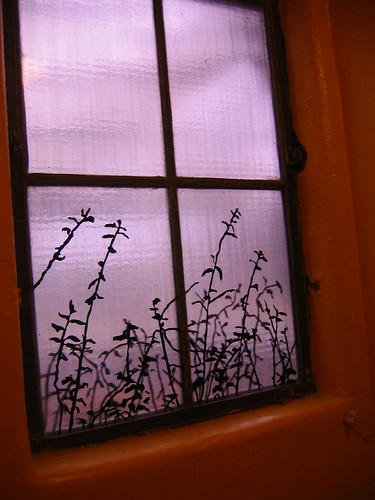
{Photos by rocketlass.}
I made an wonderful, unexpected discovery while I was on vacation last week. As I was browsing in a pleasant used bookstore, Black River Books, a set of three lovely little matched hardcovers caught my eye--and mere days later, I think I may now be a John O’Hara fan.
I’ve never been strong on midcentury American authors--the Anglophile in me tends to win out when it comes to that part of the century--and O’Hara is someone I might simply never have gotten around to. But all it took was reading the first page or two of the three individually bound novellas that make up Sermons and Soda-Water (1960), and I was hooked. Try the opening of the third one, We’re Friends Again:
I know of no quiet quite like that of a men’s club at about half past nine on a summer Sunday evening. The stillness is a denial of the meaning and purpose of a club, and as you go from empty room to empty room and hear nothing but the ticking of clocks and your own heel taps on the rugless floor, you think of the membership present and past; the charming, dull, distinguished, vulgar, jolly, bibulous men who have selected this place and its company as a refuge from all other places and all other company. For that is what a club is, and to be alone in it is wrong. And at half past nine on a summer Sunday evening you are quite likely to be alone. The old men who live there have retired for the night, sure that if they die before morning they will be discovered by a chambermaid, and that if they survive this night they will have another day in which their loneliness will be broken by the lunch crowd, the cocktail crowd, and the presence of a few men in the diningroom in the evening. But on a summer Sunday evening the old men are better off in their rooms, with their personal possessions, their framed photographs and trophies of accomplishment and favorite books. The lounge, the library, the billiard and card room have a deathly emptiness on summer Sunday evenings, and the old men need no additional reminder of emptiness and death.

There’s a clarity and confidence to O’Hara’s prose here that I find remarkably bracing, the sure first-person voice conveying the desolation of the empty club so clearly that this long-gone bastion of midcentury manhood and privilege rises around you, smelling of leather and hair tonic and stale tobacco.
That lean clarity is maintained throughout the three novellas, and its straightforwardness and seeming simplicity are incredibly seductive, to the point where I could imagine them being dangerously influential for a writer of fiction. O’Hara’s sentences make me want to write like that, all adornment stripped away or skillfully hidden within an overtly utilitarian syntax. In his introduction to the three novellas, O’Hara wrote that his increasing age convinced him to leave these stories short, rather than try to spin them out into full-length novels. “I want to get it all down on paper while I can,” he wrote, and that urgency, that need to remember and commemorate and explain and understand, comes through in every sentence. It makes you ache for the simple fact that the past is lost forever, and it makes you admire those who try to save it for us despite.
i think youd like appointment in samara by ohara
ReplyDeleteI believe I have that same attractive set, from a used book store in Saratoga. Haven't gotten to them yet, but looking forward to it.
ReplyDeleteI'm jealous you discovered O'Hara so recently. It means you get to read his stories for the first time.
ReplyDelete